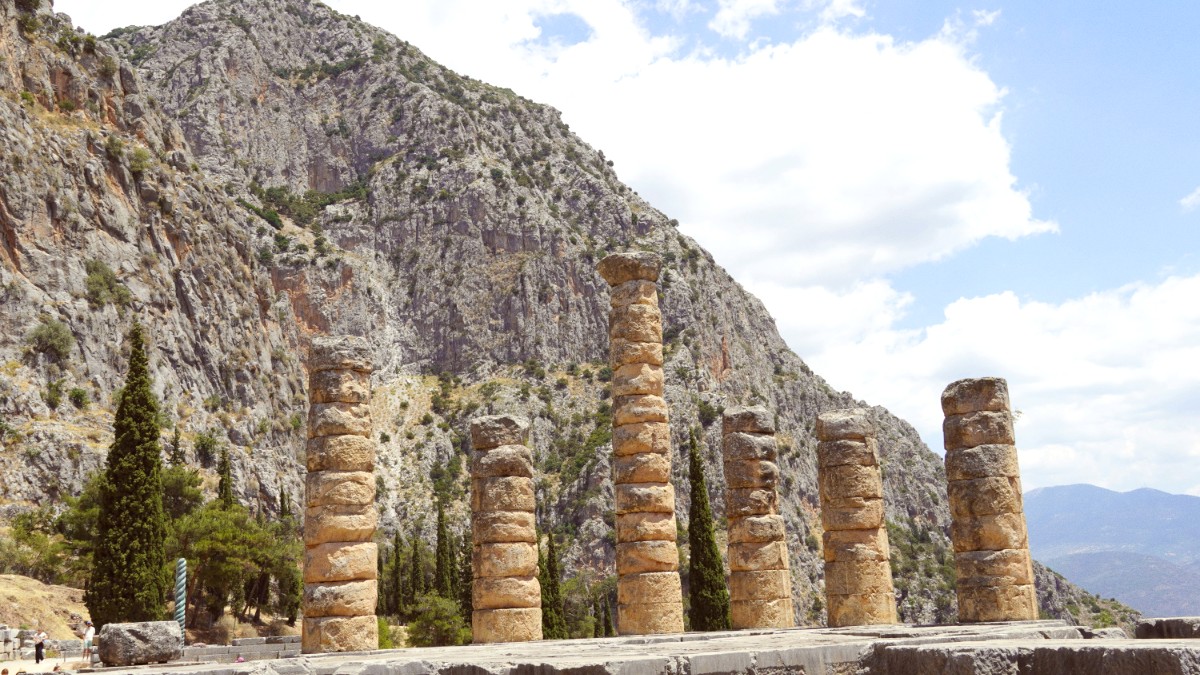
Greece
Spring (April - May) sees temperatures around 50-70°F (10-21°C). May brings clearer skies and lush landscapes with wildflowers. Humidity stays comfortable.
Summer (June - August) temperatures go from 75-95°F (24-35°C), often over 100°F (38°C) in July/August. Minimal rain and abundant sunshine. Low, dry humidity.
High Season (June-August) means long daylight hours and minimal rain. All facilities operate at full capacity. Expect very high temperatures, especially midday, and large crowds.
Shoulder Season (April-May & Sept-Oct) has comfortable temperatures, fewer crowds, and lower prices. Some rain possible, especially in April and October. Evenings get cooler.
July-August
Sun hat, high-SPF sunscreen, ample water. Visit early mornings/late afternoons.
Midday sun for strenuous activity at the archaeological site.
Dec-Feb
Waterproof footwear and warm clothing. Accessibility may vary.
High elevation roads without proper snow gear.
Anytime
A windbreaker or sturdy jacket for unexpected gusts.
Light clothing in exposed areas.
Shoulder seasons (Apr-May, Sep-Oct) give comfortable temperatures. Arrive at opening in summer to avoid heat and crowds.
Spring (Apr-May) is great for Mount Parnassus hikes, with cooler temperatures and wildflowers. Autumn (Sep-Oct) also offers pleasant conditions.
Offer optimal light for capturing ruins and panoramic views.
Can enhance outdoor photography with a golden quality.
Its harshness can reduce photo quality.
Snow-capped mountains offer unique photographic chances.
Pack versatile layers for adapting to changes.
Greece is a member of the Schengen Area, which simplifies travel for many.
Citizens of many non-EU/EEA countries need a Schengen visa for stays up to 90 days within any 180-day period. Apply through the Greek embassy or consulate well in advance.
Your passport must be valid for three months beyond departure from Schengen, with two blank pages. Digital and physical copies are recommended.
Greece uses the Euro (€). ATMs are widely available in Delphi village. Most places accept major credit cards. Carry cash for smaller purchases.
Tipping is customary but not obligatory. For good service in restaurants, 5-10% is appropriate. Round up taxi fares. For guides, €5-10/person half-day, €10-20 full-day.
€62-105/day (Hostel: €25-45, Food: €20-30, Transport: €5-10, Activities: €12-20)
€130-255/day (Hotel: €60-120, Food: €40-70, Transport: €10-25, Activities: €20-40)
€300+/day (Hotel: €150+, Food: €80+, Transport: €30+, Activities: €40+)
€16-18 one-way.
Combined Ticket: €12 (full), €6 (reduced).
Greece is generally safe, but understanding common concerns and emergency procedures proves helpful.
The sun is intense in summer. Protect yourself with sunscreen, a sun hat, and sunglasses. Stay hydrated.
Emergency Number: 112 (Police, Ambulance, Fire)
Delphi has a local health center for basic medical needs. For serious emergencies, larger hospitals are in Amfissa or Livadeia.
Pharmacies (φαρμακεία) operate in the modern village, offering advice and over-the-counter medications. Many pharmacists speak English.
Consult a healthcare professional or travel clinic four to six weeks before your trip for personalized vaccination recommendations.
Tap water in Delphi is generally safe and of good quality. Bottled water is widely available.
Standards in Greek restaurants are typically good. Choose busy restaurants for fresh ingredients and thoroughly cooked meals.
Wash hands frequently. Routine vaccinations should be up-to-date. No specific vaccinations are required for entry to Greece.
Delphi is a very safe tourist destination with extremely low crime rates. Violent crime is rare. Petty crime (pickpocketing) is uncommon in Delphi itself but can occur in crowded areas in larger cities like Athens.
Comprehensive travel insurance is strongly recommended for all travelers. A good policy covers emergency medical expenses, trip cancellation, and lost luggage.
Hospitalization, doctor visits, prescription medications, emergency medical evacuation.
Trip cancellation or interruption due to unforeseen circumstances.
Reimbursement for lost, delayed, or stolen belongings. Personal liability coverage.